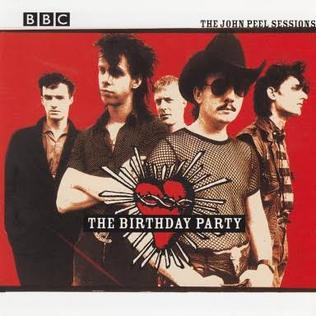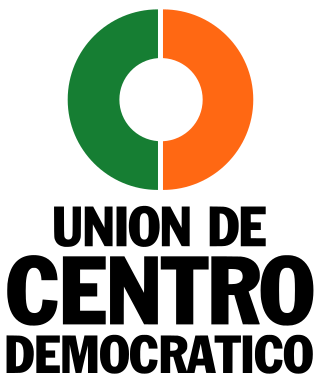
Leonid Ilyich Brezhnev was a Soviet politician who served as General Secretary of the Communist Party of the Soviet Union from 1964 until his death in 1982, and Chairman of the Presidium of the Supreme Soviet from 1960 to 1964 and again from 1977 to 1982. His 18-year term as General Secretary was second only to Joseph Stalin's in duration. To this day, the value of Brezhnev's tenure as General Secretary remains debated by historians. While his rule was characterized by political stability and significant foreign policy achievements, it was also marked by corruption, inefficiency, economic stagnation, and rapidly growing technological gaps with the West.

The Constitution of the People's Republic of China is the supreme law of the People's Republic of China. It was adopted by the 5th National People's Congress on December 4, 1982, with further revisions about every five years. It is the fourth constitution in PRC history, superseding the 1954 constitution, the 1975 constitution, and the 1978 constitution.

The Birthday Party were an Australian post-punk band, active from 1977 to 1983. The group's "bleak and noisy soundscapes," which drew irreverently on blues, free jazz, and rockabilly, provided the setting for vocalist Nick Cave's disturbing tales of violence and perversion. Their 1981 single "Release the Bats" was particularly influential on the emerging gothic scene. Despite limited commercial success, The Birthday Party's influence has been far-reaching, and they have been called "one of the darkest and most challenging post-punk groups to emerge in the early '80s."

The General Secretary of the Central Committee of the Communist Party of China is the head of the Communist Party of China (CPC), the sole ruling party of the People's Republic of China (PRC). Since 1989, the CPC general secretary has been the paramount leader of the PRC.

The Christian Democrats is a Christian-democratic political party in Finland.

The National Front (NF) is a far-right, fascist political party in the United Kingdom. It is currently led by Tony Martin. As a minor party, it has never had its representatives elected to the British or European Parliaments, although it gained a small number of local councillors through defections and it has had a few of its representatives elected to community councils. Founded in 1967, it reached the height of its electoral support during the mid-1970s, when it was briefly England's fourth-largest party in terms of vote share.

The November 1982 Irish general election to the 24th Dáil was held on Wednesday, 24 November, three weeks after the dissolution of the 23rd Dáil on 4 November by President Patrick Hillery, on the request of Taoiseach Charles Haughey following a defeat of the government in a motion of confidence. The general election took place in 41 Dáil constituencies throughout Ireland for 166 seats in Dáil Éireann, the house of representatives of the Oireachtas.

The February 1982 Irish general election to the 23rd Dáil was held on Thursday, 18 February, three weeks after the dissolution of the 22nd Dáil on 27 January by President Patrick Hillery on the request of Taoiseach Garret FitzGerald on the defeat of the government's budget. The general election took place in 41 Dáil constituencies throughout Ireland for 166 seats in Dáil Éireann, the house of representatives of the Oireachtas.
Events from the year 1982 in Ireland.
The Reform Party, formally the New Zealand Political Reform League, was New Zealand's second major political party, having been founded as a conservative response to the original Liberal Party. It was in government between 1912 and 1928, and later formed a coalition with the United Party, and then merged with United to form the modern National Party.

Federal elections were held in West Germany on 6 March 1983 to elect the members of the 10th Bundestag. The CDU/CSU alliance led by Helmut Kohl remained the largest faction in parliament, with Kohl remaining Chancellor.

The 1990 United States House of Representatives elections was an election for the United States House of Representatives on November 6, 1990, to elect members to serve in the 102nd United States Congress. They occurred in the middle of President George H. W. Bush's term. As in most midterm elections, the President's Republican Party lost seats to the Democratic Party, slightly increasing the Democratic majority in the chamber. It was a rare instance, however, in which both major parties lost votes to third parties such as the Libertarian Party as well as independent candidates.

The 1982 United States House of Representatives elections was an election for the United States House of Representatives held on November 2, 1982, to elect members to serve in the 98th United States Congress. They occurred in the middle of President Ronald Reagan's first term, whose popularity was sinking due to economic conditions under the 1982 recession. The President's Republican Party lost seats in the House, which could be viewed as a response to the President's approval at the time. Unlike most midterm election cycles, the number of seats lost—26 seats to the Democratic Party—was a comparatively large swap. It included most of the seats that had been gained the previous election, cementing the Democratic majority. Coincidentally, the number of seats the Democrats picked up (26), was the exact amount the Republicans would have needed to win the House majority. It was the first election held after the 1980 United States redistricting cycle.

The Union of the Democratic Centre was an electoral alliance, and later political party, in Spain, existing from 1977 to 1983. It was initially led by Adolfo Suárez.

The 1982 Spanish general election was held on Thursday, 28 October 1982, to elect the 2nd Cortes Generales of the Kingdom of Spain. All 350 seats in the Congress of Deputies were up for election, as well as 208 of 254 seats in the Senate.

Democratic and Social Centre is a liberal political party in Spain, founded in 1982 by former Prime Minister Adolfo Suárez. The party was a member of the Liberal Democratic and Reformist Group in the European Parliament and the Liberal International. In 2006, most of its remaining members merged into the People's Party, though a reduced faction continued the party, which won some seats in the 2007 local elections.
The leader of the Central Committee of the Chinese Communist Party is the highest-ranking official and head of the Chinese Communist Party (CCP). Since 1982, the General Secretary of the Central Committee is considered the party's leader. Since its formation in 1921, the leader's post has been titled as Secretary of the Central Bureau (1921–1922), Chairman, and General Secretary.

The United States House of Representatives elections in California, 1982 was an election for California's delegation to the United States House of Representatives, which occurred as part of the general election of the House of Representatives on November 2, 1982. California gained two seats, both of which were won by Democrats, as a result of the 1980 census, and Democrats picked up three Republican-held districts.

The president of the People's Republic of China, commonly called the president of China, is the state representative of the People's Republic of China. The presidency is a part of the system of people's congress based on the principle of unified power in which the National People's Congress (NPC) functions as the only branch of government and as the highest state organ of power. The presidency is a state organ of the NPC and equivalent to, for instance, the State Council and the National Supervisory Commission, rather than a political office, unlike the premier of the State Council. The president can engage in state affairs and receive foreign diplomatic envoys on behalf of China, but to perform other heads of state functions, the president needs the consent of the NPC or the NPC Standing Committee. While the presidency is not a powerful organ in itself, since 27 March 1993, the president has concurrently served as general secretary of the Central Committee of the Chinese Communist Party (CCP) and chairman of the Central Military Commission, making the incumbent China's paramount leader and supreme commander of the armed forces.
Legislative Assembly elections were held in the Indian state of West Bengal in 1982. The Left Front, which had won the 1977 West Bengal Legislative Assembly election, emerged victoriously. The Indian National Congress emerged as the main opposition party in the state, as the Janata Party was disintegrating.















